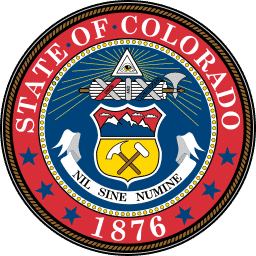…
There are five physical therapy assistant schools in Colorado that have the necessary accreditation to receive state officials’ approval.
The institutions include a private institute, a private college, and two public community colleges. They are in Denver, Aurora, Littleton, and Pueblo. PTA students receive the instruction and training they need to become certified professionals.
The Centennial State is an outstanding location for this occupation. More than a dozen clinics and other facilities employ multiple PTAs. The number of jobs is expected to soar at a fast clip, with approximately 210 openings per year through 2026.
You Might Also Like:

A division of the Colorado Department of Regulatory Agencies, the SPTB certifies PTAs to practice in the state. The board evaluates the qualification of applicants for certification, issues and renews certificates, imposes continuing education mandates, and maintains a list of approved PTA schools.
This panel is also charged with reviewing complaints about practitioners. Authorities work with the Colorado attorney general’s staff and the state Office of Investigations to look into alleged violations. Punitive measures range from letters of concern and admonition to fines and probation.
The makeup of the board is four physical therapists, two PTAs, and two members from the public at large. Appointments by the governor expire after four years.
Upon either finishing high school or securing a general education diploma, a student needs to enroll in a PTA school that the Commission on Accreditation in Physical Therapy Education recognizes.
CAPTE rates schools on factors such as curricula, faculty credentials, and class sizes. Programs must have an 80 percent graduation rate, 85 percent licensing exam pass rate, and 90 percent employment rate. Curricula are to feature didactic (classes) and clinical (practical experiences) components.
Continuing education is required every two years. PTAs must demonstrate their “knowledge and skills through documentation of professional development activities.” Once each decade, practitioners have to take the Assessment of Knowledge and Skills.
Those who graduate from postsecondary schools are not yet qualified to seek employment. FIrst, they must obtain certification from the Colorado Division of Professions and Occupations’ Office of Licensing. Part of the process is creating a Healthcare Professional’s Profile, a requirement for all of the state’s healthcare professionals.
The State Physical Therapy Board decides whether a certificate applicant is eligible to take the National Physical Therapy Exam for PTAs. Students sign up for the NPTE on the Federation of State Boards of Physical Therapy website.
A 600 score, on a scale of 200 to 800, is needed to pass the exam at a Prometric testing center in Greenwood Village or Longmont. An online practice exam and assessment tool, as well as the NPTE Candidate Handbook, help students prepare. The test covers therapeutic modalities, devices and equipment, data collection, safety and protection, interventions, and professional responsibilities.
Practitioners have to renew their certificates biennially.
We selected the schools below based on the programs that they offer, accreditation, student population, graduation rate and reputation.
View our Ranking Methodology to learn more about how we rank schools.

73%
631
This privately owned school, founded in 1972, has 17 locations in eight states. The campus on Denver’s Dakin Street is one of the sites that awards associate of occupational science degrees.
The 66.5-credit program lasts about 18 months. There are 655 clock hours of theory, 291 hours in labs, and 640 hours in three internships. Students take the standard courses, plus Math & Physics Applications, Communications for the Health Professions, Law & Ethics, Growth & Development, and Administrative Procedures.
One requirement for admission is posting a minimum score on the entrance examination, except for applicants who already hold postsecondary degrees.
72%
778
A private institution in operation for nearly a half-century, CCC offers 20 career programs on 16 campuses in eight states. Future PTAs study just outside Denver, near Interstate 225.
The program involves 20 months of day classes and internships. Along with the usual coursework, classes include Elements of Human Communication, English Composition I, General Psychology, Human Growth & Development, and either Contemporary Mathematics or College Biology.
The school touts its “seasoned teachers with industry experience.” There are career and student services, as well as a scholarship foundation that helps low-income students and U.S. military veterans.
23%
6197
This public school provides a two-year, five-semester PTA associate in applied science degree program.
The curriculum consists of 75 credits, including general education classes. The curriculum covers Conceptual Physics, three Professional Communications classes, Principles of Electrical Stimulation, English Composition I, General Psychology, Psychosocial Issues in Healthcare, Ortho and Neuro Assessment & Management Techniques, and Public Speaking. There are three 40-hour-per-week internships.
Twenty or fewer students are in each class. The school boasts “interactive lab opportunities in a spacious lab with state of the art equipment.” Faculty members have more than 100 years of professional physical therapy experience.
20%
11544
Another public institution, ACC trains PTAs on its main campus in Littleton—10 miles from downtown Denver. The 75-credit associate in applied science program lasts five semesters, including a summer session.
Along with the typical subjects, students take Public Speaking or Interpersonal Communication, English Comp I, General Psychology, Human Growth and Development, Professional Communication I and II, Principles of Electrical Stimulation, Psychosocial Issues, Orthopedic and Neurological Assessment and Management Techniques, and three internships.
The school provides career counseling, resume building, interview skills, job search strategies, and child care. Incoming students must be proficient in college-level English and math.
These programs are composed of three elements: classroom sessions, lab work, and real-world clinical training. All of the curricula provide instruction in anatomy, physiology, kinesiology, medical terminology, clinical pathology, PTA techniques, rehabilitation, and therapeutic exercises. Some schools have additional technical courses, and there may be general education class requirements.
A full-time student can graduate within two years or sooner. Schools award three types of degrees: associate in science, associate in applied science, or associate of occupational studies.
$27
$56,300
43%
Median annual salaries and wages here are nearly $56,300 and more than $27, which is a tad below the United States averages of about $58,000 and $28.
Among practitioners in the highest 10 percent, earnings total almost $73,800 a year or $35.50 per hour in Colorado—not too far off the country’s medians (over $79,800 or close to $39). For the state’s lowest 10 percent, the figures are about $34,650 or $16.65—just above the almost $33,800 and $16.25 nationwide.
Colorado employed 1,200 PTAs in 2016. Federal labor experts estimated that there would be 1,720 within a decade—a whopping 43 percent rate of growth, compared with an anticipated 31 percent nationally. There are more than 500 positions in Denver alone.
Sources: U.S. Bureau of Labor Statistics, CareerOneStop

LIMITED TIME DEAL